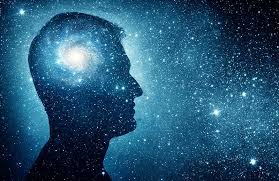 Why are we here? What is out there? What is existence? Philosophical questions like these, provoked by our very being, belong to metaphysics, the study of the nature of reality, of what there is in the world. But what is the point of asking big questions about life if they are never answered? Today, one of the biggest criticisms of philosophy is that it “makes no progress.” That is, despite being around for about 2,500 years, philosophy has little to show for itself, no definitive solutions, with no big breakthroughs of which to boast, compared to those of science; indeed, many of the problems in contemporary philosophy are as old as the discipline itself. And whenever a solution is posed, it is not universally accepted and lauded; there is bound to be a debate, resulting in divisive opinions.
Why are we here? What is out there? What is existence? Philosophical questions like these, provoked by our very being, belong to metaphysics, the study of the nature of reality, of what there is in the world. But what is the point of asking big questions about life if they are never answered? Today, one of the biggest criticisms of philosophy is that it “makes no progress.” That is, despite being around for about 2,500 years, philosophy has little to show for itself, no definitive solutions, with no big breakthroughs of which to boast, compared to those of science; indeed, many of the problems in contemporary philosophy are as old as the discipline itself. And whenever a solution is posed, it is not universally accepted and lauded; there is bound to be a debate, resulting in divisive opinions.
 So why do we still have philosophy, particularly metaphysics? Is it merely idle speculation, relegated to old men in armchairs? The answer is no: Philosophy is as natural to us humans as wanting to be in the presence of others. As kids, we exhibited an unbridled curiosity for the world, persistently asking questions to the annoyance of our parents, awed by everything that escaped our grasp or refused =explanation, because it added a sense of magic to life. Arguably, then, philosophy is more of an intrinsic, natural endeavor than science, not in the least because the latter derives from the former, but mainly because philosophy is essentially a part of the human condition: the fact that it has stayed around so long in civilization, and the fact that our inclination for it begins so early in age, attests to its necessity.
So why do we still have philosophy, particularly metaphysics? Is it merely idle speculation, relegated to old men in armchairs? The answer is no: Philosophy is as natural to us humans as wanting to be in the presence of others. As kids, we exhibited an unbridled curiosity for the world, persistently asking questions to the annoyance of our parents, awed by everything that escaped our grasp or refused =explanation, because it added a sense of magic to life. Arguably, then, philosophy is more of an intrinsic, natural endeavor than science, not in the least because the latter derives from the former, but mainly because philosophy is essentially a part of the human condition: the fact that it has stayed around so long in civilization, and the fact that our inclination for it begins so early in age, attests to its necessity.
So why did one of the most respected philosophers in history critique metaphysics’ very foundations? Immanuel Kant (1724-1804), an Enlightenment thinker esteemed as one of the founders of Modern philosophy, launched a famous revolution in philosophy, calling metaphysics into question, challenging it with what he called the “antinomy of pure reason” in order to establish it as a formal science. In today’s post, we will be looking at why and how Kant attacked traditional metaphysics, and how it demonstrates the spirit of philosophy.
Intro
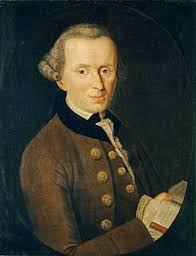 Before diving straight into the “antinomy of pure reason,” it is important that I first take some time to introduce Immanuel Kant and his project, for becoming acquainted with his philosophy is an essential prerequisite, and his terminology is incredibly difficult. Kant’s magnum opus was the Critique of Pure Reason, published in 1781, at the height of the Enlightenment, known in Germany as the Aufklärung. The purpose of the book was to synthesize the two rival philosophical systems at the time: rationalism and empiricism. According to the rationalists, all knowledge was derived from the mind, and reality was in some cases considered to be a creation of the mind, composed of pure ideas; whereas the empiricists believed that knowledge was acquired through our sensory experience of the world, e.g., our five senses, the natural world just as real as ourselves. Famous rationalists were Descartes, Leibniz, and Spinoza, and famous empiricists were Locke and Hume. Thus, the debate came down to this: Is knowledge innate or sensate?
Before diving straight into the “antinomy of pure reason,” it is important that I first take some time to introduce Immanuel Kant and his project, for becoming acquainted with his philosophy is an essential prerequisite, and his terminology is incredibly difficult. Kant’s magnum opus was the Critique of Pure Reason, published in 1781, at the height of the Enlightenment, known in Germany as the Aufklärung. The purpose of the book was to synthesize the two rival philosophical systems at the time: rationalism and empiricism. According to the rationalists, all knowledge was derived from the mind, and reality was in some cases considered to be a creation of the mind, composed of pure ideas; whereas the empiricists believed that knowledge was acquired through our sensory experience of the world, e.g., our five senses, the natural world just as real as ourselves. Famous rationalists were Descartes, Leibniz, and Spinoza, and famous empiricists were Locke and Hume. Thus, the debate came down to this: Is knowledge innate or sensate?
 A contemporary of Kant, Hume had recently published An Enquiry Concerning Human Understanding (1748), in which he argued, as an empiricist, that the ideas of “self” and causality were mere fictions, the former consisting of loosely connected threads of sensations, the latter a fallacious and ungrounded assumption on our parts, hardwired by habit, so that what we usually understand as “cause-and-effect” is really imagined, having no reality whatsoever except as we impose it. At this time, Newtonian physics was firmly established, so Kant was horrified by Hume’s arguments, seeing them as a kind of crisis that could unsettle scientific inquiry; in response, he wrote the Critique of Pure Reason as an Enlightenment defense of Newtonian science against Hume.
A contemporary of Kant, Hume had recently published An Enquiry Concerning Human Understanding (1748), in which he argued, as an empiricist, that the ideas of “self” and causality were mere fictions, the former consisting of loosely connected threads of sensations, the latter a fallacious and ungrounded assumption on our parts, hardwired by habit, so that what we usually understand as “cause-and-effect” is really imagined, having no reality whatsoever except as we impose it. At this time, Newtonian physics was firmly established, so Kant was horrified by Hume’s arguments, seeing them as a kind of crisis that could unsettle scientific inquiry; in response, he wrote the Critique of Pure Reason as an Enlightenment defense of Newtonian science against Hume.
Kant began by classifying three kinds of judgments we make: (1) analytic a priori, (2) synthetic a posteriori, and (3) synthetic a priori. Analytic basically means “true by definition,” and synthetic “true by experience”; meanwhile, a priori, having the word “prior” in it, refers to something we have innately, something “prior to experience,” and a posteriori has “post,” meaning “after,” as in “after experience.” In sum, an analytic a priori statement is something true by definition because we know its meaning; synthetic a posteriori something true because we experience it to be so; and synthetic a priori something of which we have no experience, but which we know to be true innately. Philosophy, both metaphysical and natural (i.e., science), said Kant, consists in the latter propositions, namely synthetic a priori.
 The philosophical system devised by Kant is known as “Transcendental Idealism,” which states that there are two worlds, the phenomenal (sensory) and the noumenal (intelligible), the first of which consists of appearances we know through sensory experience, known as intuition, which is filtered through categories of the mind; the second of which, the noumenal, consists of things-in-themselves (dinge-an-sich), the true nature of objects, which remain inaccessible to us. The name transcendental idealism explains that there is a world transcendent to—that is, beyond—ours, which is at the same time ideal, considering it cannot be known, existing only in theory, incomprehensible to us.
The philosophical system devised by Kant is known as “Transcendental Idealism,” which states that there are two worlds, the phenomenal (sensory) and the noumenal (intelligible), the first of which consists of appearances we know through sensory experience, known as intuition, which is filtered through categories of the mind; the second of which, the noumenal, consists of things-in-themselves (dinge-an-sich), the true nature of objects, which remain inaccessible to us. The name transcendental idealism explains that there is a world transcendent to—that is, beyond—ours, which is at the same time ideal, considering it cannot be known, existing only in theory, incomprehensible to us.
The Paralogisms
Kant launched his assault on metaphysics in a section of the Critique entitled “Transcendental Dialectic.” Before the antinomies, Kant dealt with what he called paralogisms. The close cousin of the paralogism is the paradox, as they both refer to a problem that seems to fall apart due to its very nature. Thus, the paralogisms with which Kant concerned himself were fallacies, errors in thinking that were due to the fact that their subject matter was beyond experience. He identified these paralogisms specifically as belonging to what he called “rational psychology,” or the abstract study of the soul, as undertaken by Descartes.
Kant enumerated four paralogisms: (1) The soul, unlike the body, is immaterial, lacking any physicality; (2) the soul, being immaterial, is a whole, irreducible to any smaller parts; (3) the soul is that with which we identify, the source of our personality, as we like to think of it; and (4) the soul, or self, is essentially self-consciousness. Although he analyzed each of these paralogisms in turn, I will focus on (1) and (3).
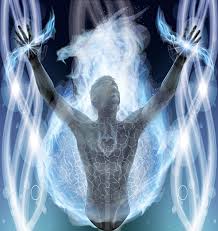 The first paralogism was in direct response to Cartesian dualism, which said that the body was physical and dimensional, and the soul spiritual and non-dimensional. When Descartes said, “Cogito ergo sum,” or, “I think, therefore I am,” he assumed that, being able to think about himself, he was himself a thinking thing, a res cogitans, divorced from the world. However, Kant recognized that the mere awareness of one’s thinking said nothing about who “one” was. In other words, through “Cogito ergo sum,” I know only that I am thinking, but not that, essentially, I am thought. Descartes falsely identified his process of thinking with himself, equating the two, such that his self was immaterial thought.
The first paralogism was in direct response to Cartesian dualism, which said that the body was physical and dimensional, and the soul spiritual and non-dimensional. When Descartes said, “Cogito ergo sum,” or, “I think, therefore I am,” he assumed that, being able to think about himself, he was himself a thinking thing, a res cogitans, divorced from the world. However, Kant recognized that the mere awareness of one’s thinking said nothing about who “one” was. In other words, through “Cogito ergo sum,” I know only that I am thinking, but not that, essentially, I am thought. Descartes falsely identified his process of thinking with himself, equating the two, such that his self was immaterial thought.
Regarding (3), we assume that our everyday stream-of-consciousness is who we are. Kant conceded that our experience is indeed unified by something, viz., the unity of apperception, yet he did not believe that we could name this something. Yes, the cool air of the fan, the bubbling of the sparkling water, and the computer in front of me are mine in experience—but that to which they belong, the so-called “self,” is unknowable to me. Therefore, he sided with Hume in declaring that all we have access to is a succession of perceptions. While our consciousness is impermanent, the world outside us is permanent.
The Transcendental Dialectic
 So what, again, was the purpose of the transcendental dialectic? Why was Kant taking the time to tackle the dominant metaphysical Gordian knots of the time? To put it simply, Kant was trying to humble metaphysics, to “put it in its place.” As he saw it, metaphysics had become too complacent in making ambitious claims about the Universe. Philosophers like Leibniz had attempted to deduce the nature of reality and God’s theodicy. And yet, like religion, and unlike science, metaphysics was, to Kant, dogmatic: Where science makes demonstrable claims, religion does not rely on proof, but claims its beliefs are right on authority; likewise, metaphysics fails hopelessly to prove, for example, how many angels can dance on the head of a pin.
So what, again, was the purpose of the transcendental dialectic? Why was Kant taking the time to tackle the dominant metaphysical Gordian knots of the time? To put it simply, Kant was trying to humble metaphysics, to “put it in its place.” As he saw it, metaphysics had become too complacent in making ambitious claims about the Universe. Philosophers like Leibniz had attempted to deduce the nature of reality and God’s theodicy. And yet, like religion, and unlike science, metaphysics was, to Kant, dogmatic: Where science makes demonstrable claims, religion does not rely on proof, but claims its beliefs are right on authority; likewise, metaphysics fails hopelessly to prove, for example, how many angels can dance on the head of a pin.
Metaphysics was grounded in “transcendental illusions,” as Kant described them. These illusions, these false beliefs, these biases that bedeviled philosophers for centuries—they were transcendental in that they went beyond experience. Kant, evidently, saw himself as a debunker of sorts, disabusing these commonly held misconceptions, exposing them for their intrinsic flaws. The mind has a tendency to overreach its power. Its faculty of reason, especially, searches for a complete, comprehensive, and coherent picture of the Universe; a weltanschauung, or worldview; a Weltbild, or world-picture, in Heidegger’s words. Key to the antinomies, Kant expressed, was not whether either side was right, i.e., validity, but the very propositions themselves, in which lay major loopholes, i.e., ground.
The Antinomy of Pure Reason
The word antinomy comes from the Latin antinomia, initially a legal term, which denoted a conflict of laws, a contra-diction, or “saying-against,” comparable to a clashing of ideas, or debate. Central to the antinomy is the second law of logic, known as the “law of excluded middle,” which states, simply: Either something is true or something is false.  Consequently, in an antinomy, there can be no “both… and”; it is “either… or”; there is no room for compromise. Hence, Kant’s treatment of the antinomies in the transcendental dialectic makes sense: It is a dialectic because it is a back-and-forth dynamic, a problem of contradiction, of opposition. One begins with a thesis and proceeds by an antithesis. But unlike regular dialectics, antinomies are transcendental; and as such, they are fundamentally balanced. The ancient Skeptic school under Pyrrho argued that any statement or proposition was neither true nor false, but indeterminate, precisely because, for whatever argument you put forth, one of equal weight could be counterposed. Similarly, the antinomy arises because its theses and antitheses are always balanced, no matter what. Every argument has its counterargument. Progress is illusory. It was no wonder, then, that the empiricists and rationalists of Kant’s time could agree on so little, always at odds with one another. Kant outlined four antinomies:
Consequently, in an antinomy, there can be no “both… and”; it is “either… or”; there is no room for compromise. Hence, Kant’s treatment of the antinomies in the transcendental dialectic makes sense: It is a dialectic because it is a back-and-forth dynamic, a problem of contradiction, of opposition. One begins with a thesis and proceeds by an antithesis. But unlike regular dialectics, antinomies are transcendental; and as such, they are fundamentally balanced. The ancient Skeptic school under Pyrrho argued that any statement or proposition was neither true nor false, but indeterminate, precisely because, for whatever argument you put forth, one of equal weight could be counterposed. Similarly, the antinomy arises because its theses and antitheses are always balanced, no matter what. Every argument has its counterargument. Progress is illusory. It was no wonder, then, that the empiricists and rationalists of Kant’s time could agree on so little, always at odds with one another. Kant outlined four antinomies:
- Either the world is finite, or the world is infinite.
- Either objects are irreducible, or objects are reducible.
- Either there is freedom, or there is determinism.
- Either there is a God, or there is not a God.
Of these, the first two he deemed “mathematical,” because they dealt with matters spatiotemporal, falling under the domain of rational cosmology; the last two “dynamical,” because they dealt with matters causal, falling under the domain of rational theology. In each antinomy, the theses correspond to rationalist moral claims, whereas the antitheses correspond to empiricist physical claims.
“Solution”
Obviously, because he saw them as troublesome for philosophy, and for humans in general, Kant took it upon himself to “answer,” or rather disabuse, these problems. The simple reason they fall apart is due to the fact that, in each antinomy, the concern is with things-in-themselves (noumena), rather than actual objects of experience (phenomena). For this reason, they are purely speculative, which is why they are called antinomies of  “pure reason”: They derive from ideas of the mind, untouched by the sensible world. Kant pointed out that, when approaching the antinomies, we apply our innate categories to whatever we are talking about, be it the Universe, God, or the soul. This is a mistake. Categories apply only to a posteriori sense experiences, not a priori concepts, as Kant put it. An illustration might clarify this: When we picture a pen, we think of the pen as a dimensional object, colored, set against a background, that is, in space; as such, the object is filtered through the respective categories of substance, color, and space, etc. However, if asked, for example, to “picture God,” then we are met with… well, nothing: We can, of course, anthropomorphize God, making Him resemble us, but how are we to reconcile this with the fact that God is supposed to be outside of time and space? This is what Kant meant when he said we can apply categories (e.g., space, size, quantity, etc.) to things only in our experience, not in our minds.
“pure reason”: They derive from ideas of the mind, untouched by the sensible world. Kant pointed out that, when approaching the antinomies, we apply our innate categories to whatever we are talking about, be it the Universe, God, or the soul. This is a mistake. Categories apply only to a posteriori sense experiences, not a priori concepts, as Kant put it. An illustration might clarify this: When we picture a pen, we think of the pen as a dimensional object, colored, set against a background, that is, in space; as such, the object is filtered through the respective categories of substance, color, and space, etc. However, if asked, for example, to “picture God,” then we are met with… well, nothing: We can, of course, anthropomorphize God, making Him resemble us, but how are we to reconcile this with the fact that God is supposed to be outside of time and space? This is what Kant meant when he said we can apply categories (e.g., space, size, quantity, etc.) to things only in our experience, not in our minds.
God and the soul are unverifiable concepts. It is not as though one can look through a dictionary and find the depiction of either, for they are too extensive, too broad for our understanding, lying outside our experience, even our lifetime, concepts so sublime as to be unfathomable. In addition to being unempirical, God and the soul are negative concepts. By this, I mean we usually approach them through negation. Within theology, there is something called the “apophatic method,” which dictates that we describe God  not as He is, but as He is not. So we can say, “God is not spatial, and God is not temporal”—but this leaves us with, “Well then—what is God?” The reason we have the apophatic, or negative, method, is because it starts with what we do know, namely our experience, and proceeds thence, toward what we cannot know. Thus, from Kant’s perspective, the negative method is our way of deducing the transcendental (beyond) from the empirical (here). Again, though, this is an impossibly doomed endeavor, for after all, invoking Meno’s paradox, how we can we possibly imagine something we have never seen? How do we know what God and the soul look like if we have never experienced them? We may speak of and describe the vaguely “interior feeling” of the soul, yet this in itself yields us little wherewithal. Without a definitive form, and without a cognizable spatiotemporality, no concept can be comprehended. They are abstract. They are, as Stumpf points out, literally “nonsensical,” not in the sense (no pun intended) of being senseless (meaningless), but of having no basis in experience, no sensibility (sense-ability), insensible.[1]
not as He is, but as He is not. So we can say, “God is not spatial, and God is not temporal”—but this leaves us with, “Well then—what is God?” The reason we have the apophatic, or negative, method, is because it starts with what we do know, namely our experience, and proceeds thence, toward what we cannot know. Thus, from Kant’s perspective, the negative method is our way of deducing the transcendental (beyond) from the empirical (here). Again, though, this is an impossibly doomed endeavor, for after all, invoking Meno’s paradox, how we can we possibly imagine something we have never seen? How do we know what God and the soul look like if we have never experienced them? We may speak of and describe the vaguely “interior feeling” of the soul, yet this in itself yields us little wherewithal. Without a definitive form, and without a cognizable spatiotemporality, no concept can be comprehended. They are abstract. They are, as Stumpf points out, literally “nonsensical,” not in the sense (no pun intended) of being senseless (meaningless), but of having no basis in experience, no sensibility (sense-ability), insensible.[1]
The Mathematical
Specifically, Kant thought the mathematical antinomies (1&2) were inherently unverifiable, but not false, per se, just… “confused,” in a Wittgensteinian way, which is to say, problematic because of their linguistics. The mathematical arguments are the opposite of the negative method; they are boundlessly positive: They assert more than they can know confidently. Instead of leaping from the empirical/immanent to the transcendental, the mathematical antinomies leap from the transcendental to the empirical. Assuming transcendental, pure categories like infinity and indivisibility, they apply them to empirical objects. Kant diagnosed this error as equivocation. He noticed that both propositions confuse the limits of our experience with what is in itself experienceable, taking them to be synonymous, even identical. In contemporary philosophy, this is known as a “category mistake,” as found in Ryles’ treatment of Descartes’ “ghost in the machine,” which mistakenly assumes an identity between the immaterial soul (ghost) and material body (the machine). Just as Descartes mistook the soul and body to be equally spatially characterizable, so rationalists and empiricists alike mistook infinitude-finitude and indivisibility-divisibility to be categories applicable to empirical things, in Kant’s eyes.
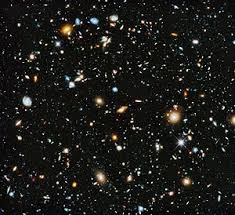 More basic than the category mistake committed in both, however, is the very premise on which both arguments rest: That cosmology, the study of the Universe, is possible. Thus, we may picture the mathematical antinomies as two towers whose legs are composed of category errors—clearly unstable supports—which themselves stand on an even shakier foundation, which is the presumption of a cosmology. Metaphysics makes claims about the whole world, the Universe per se, the “totality of beings” (Heidegger). If you thought picturing God was a hard task, then try picturing the entire Universe with all its contents in a single picture!
More basic than the category mistake committed in both, however, is the very premise on which both arguments rest: That cosmology, the study of the Universe, is possible. Thus, we may picture the mathematical antinomies as two towers whose legs are composed of category errors—clearly unstable supports—which themselves stand on an even shakier foundation, which is the presumption of a cosmology. Metaphysics makes claims about the whole world, the Universe per se, the “totality of beings” (Heidegger). If you thought picturing God was a hard task, then try picturing the entire Universe with all its contents in a single picture!
The world qua totality is unimaginable; it is literally too vast for the mind to fathom, since it cannot count every single entity and combine it into a single image. It is simply impossible. No one can think of the entire cosmos. But hypothetically, suppose we hooked ourselves up to a device that enabled us to conceive  of the whole Universe: “Even when conceived in systematic patterns, [phenomenal objects] constitute no more than a scheme lacking the full dimensions of real entities.”[2] Phenomenologically, this amounts to saying that, even if we could theoretically create a mental map of the world, it would be just that—mental. A mental map is empty and unfulfilled, as opposed to imagining something right in front of us, say, a pair of scissors. Real knowledge, or intuition, requires the apprehension of bodily presence. A pair of scissors sitting before me, of which I form an image when I look away, is therefore fulfilled, and “real,” compared to the image I could form of the entire Universe, which is unfulfilled, given that the entire Universe is not physically right here in front of me.
of the whole Universe: “Even when conceived in systematic patterns, [phenomenal objects] constitute no more than a scheme lacking the full dimensions of real entities.”[2] Phenomenologically, this amounts to saying that, even if we could theoretically create a mental map of the world, it would be just that—mental. A mental map is empty and unfulfilled, as opposed to imagining something right in front of us, say, a pair of scissors. Real knowledge, or intuition, requires the apprehension of bodily presence. A pair of scissors sitting before me, of which I form an image when I look away, is therefore fulfilled, and “real,” compared to the image I could form of the entire Universe, which is unfulfilled, given that the entire Universe is not physically right here in front of me.
So how does Kant address the mathematical antinomies? Merely saying that they are neither true nor false does not persuade us, so Kant went onto conclude, apropos of the first antinomy, that the world is indefinite in extent, space and time being neither infinite nor finite; and apropos of the second, that objects are neither irreducible nor reducible—the spatiotemporal world and the objects we encounter therein exist insofar as we experience them.
The Dynamical
Regarding the dynamical antinomies (3&4), Kant called them regulative in function. Constitutive principles, for Kant, are another way of referring to the categories of the mind because they literally constitute, or give form to and establish, the world. They are  integral and indispensable, as without them, experience is impossible. Constitutive principles can never be “toggled off” since they are a part of experience itself, always applied. On the other hand, regulative principles are reserved for pure reason because they regulate, they give direction, they guide. In a word, they are “principles… for the conduct of inquiry.”[3] Although contingent compared to the necessity of the constitutive principles, the regulative principles are nonetheless just as essential to human life, for they help us to live a good life, telling us how we ought to live, which is where the dynamical antinomies come into play. Just like how the universe and soul are transcendental, beyond the realm of experience, and therefore unverifiable, so God and free will can neither be proved nor disproved.
integral and indispensable, as without them, experience is impossible. Constitutive principles can never be “toggled off” since they are a part of experience itself, always applied. On the other hand, regulative principles are reserved for pure reason because they regulate, they give direction, they guide. In a word, they are “principles… for the conduct of inquiry.”[3] Although contingent compared to the necessity of the constitutive principles, the regulative principles are nonetheless just as essential to human life, for they help us to live a good life, telling us how we ought to live, which is where the dynamical antinomies come into play. Just like how the universe and soul are transcendental, beyond the realm of experience, and therefore unverifiable, so God and free will can neither be proved nor disproved.
God
When it comes to God, Kant had some fascinating things to say. Mimicking the infamous Creationist argument of “Absence of evidence is not evidence of absence,” Kant asserted that, in spite of the unverifiable nature of the antinomy of God’s existence, there is equal weight to both sides, meaning we should not be so quick as to eliminate one option or the other. According to Kant, it is a moral necessity to favor the thesis over the antithesis—in other words, to believe in God. Note that he did not say the thesis is true, only that we should favor it. So in a sense, like Pascal, Kant takes a pragmatic approach to religion. It is as if he was saying, “Hey, we can’t prove God, but you can’t disprove him either, but it’s better to believe than not to believe”—and by “better,” I mean advantageous. Kant’s argument for God is in the same vein as Pascal’s Wager where it leaves room for the non-existence of God while making the case that belief is a safer bet than doubt.
The utter inadequacy of logic to prove God—the arguments from design and creation are derivative of the Ontological Argument, which is itself invalidated because “Being” as Kant said, is not a predicate, and therefore not predicable of God—convinced Kant to drop logical proofs altogether, such that his justification of God was entirely subjectively,  a sort of “rational faith”—dare we say, a “Leap of Faith”? Kant notoriously wrote, “I have therefore found it necessary to deny knowledge in order to make room for faith.”[4] Because he could not prove God, he had to believe in Him. Later in the book, in a passage reminiscent of Kierkegaard, he argues that his religious faith is fundamentally personal and private, undertaken only by himself, incommunicable to others by virtue of its subjectivity: “[M]y conviction is not logical, but moral certainty; and since it rests on subjective grounds (of the moral sentiment), I must not even say, ‘It is morally certain that there is a God, etc.’, but ‘I am morally certain, etc.'”[5] Not only would Kant, à la Kierkegaard, discourage the attempt to convert a nonbeliever because it is futile (i.e., Absurd), but he would denounce it because true belief has to come from within, not from without, pressured by something external, be it the Church or a friend. Belief in the existence of God, then, is not constitutive, but regulative; it is something useful to us humans, helping us to navigate the world and give meaning to it.
a sort of “rational faith”—dare we say, a “Leap of Faith”? Kant notoriously wrote, “I have therefore found it necessary to deny knowledge in order to make room for faith.”[4] Because he could not prove God, he had to believe in Him. Later in the book, in a passage reminiscent of Kierkegaard, he argues that his religious faith is fundamentally personal and private, undertaken only by himself, incommunicable to others by virtue of its subjectivity: “[M]y conviction is not logical, but moral certainty; and since it rests on subjective grounds (of the moral sentiment), I must not even say, ‘It is morally certain that there is a God, etc.’, but ‘I am morally certain, etc.'”[5] Not only would Kant, à la Kierkegaard, discourage the attempt to convert a nonbeliever because it is futile (i.e., Absurd), but he would denounce it because true belief has to come from within, not from without, pressured by something external, be it the Church or a friend. Belief in the existence of God, then, is not constitutive, but regulative; it is something useful to us humans, helping us to navigate the world and give meaning to it.
Free Will
Analogously, the existence of free will is affirmed on practical grounds. In order to pursue goodness, virtue, morality, and duty, I need to be responsible for myself. If everything is determined, then I am faultless for my actions. For there to be any kind of morality, Kant believed free will was a must-have. The world exists as a kind of ethical site for me, a place in which to be an ethical agent, an idea that would reappear in Fichte’s subjective idealism. As a result, I need freedom and God to guide me. The indeterminacy of the antinomy—the fact that it is neither true nor false, but indemonstrable—leads to a kind of dualism about human nature, for Kant. Determinism operates on the level of phenomena, free will the level of noumena. So while on the surface we appear to have preceding causes, at root we have free will, which allows us to direct our lives.
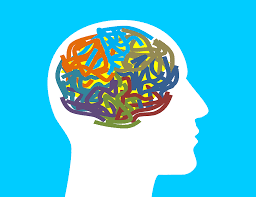 So nature as scientific subject is causally determined, from which we derive natural laws of science, etc., while we humans are dual-natured, a synthesis of phenomenon and noumenon. This dualism in human nature provided the basis for an anthropo-logy, a study of man, correlating to both dimensions, which would be initiated by Wilhelm Dilthey: On the one hand, there are the Naturwissenschaften, the natural sciences, which study man as subject, as an observable, causally determined body, adhering to strict biological laws (phenomenal); on the other, there are the Geisteswissenschaften, the human sciences, comparable to the humanities, which study man as a human agent, free, spontaneous, creative (noumenal). More importantly, Kant’s commitment to the intrinsic freedom of man allowed him to argue for the preservation of our dignity as free agents: We ought to treat each other not as means-to-an-end, but as ends-in-ourselves (note the similarity to “thing-in-itself” on the noumenal level). On the surface, we are subject to prejudices and manipulation, while deep down we are all deserving of the same love and compassion.
So nature as scientific subject is causally determined, from which we derive natural laws of science, etc., while we humans are dual-natured, a synthesis of phenomenon and noumenon. This dualism in human nature provided the basis for an anthropo-logy, a study of man, correlating to both dimensions, which would be initiated by Wilhelm Dilthey: On the one hand, there are the Naturwissenschaften, the natural sciences, which study man as subject, as an observable, causally determined body, adhering to strict biological laws (phenomenal); on the other, there are the Geisteswissenschaften, the human sciences, comparable to the humanities, which study man as a human agent, free, spontaneous, creative (noumenal). More importantly, Kant’s commitment to the intrinsic freedom of man allowed him to argue for the preservation of our dignity as free agents: We ought to treat each other not as means-to-an-end, but as ends-in-ourselves (note the similarity to “thing-in-itself” on the noumenal level). On the surface, we are subject to prejudices and manipulation, while deep down we are all deserving of the same love and compassion.
Kant did not deal directly with the soul, but elsewhere, in the Critique of Practical Judgment (the sequel), he defended the doctrine of the immortality of the soul as a prerequisite for moral perfectionism. Yet another antinomy occurs in his Critique of Judgment (completing the trilogy!), where he pitted mechanism against teleology, ultimately siding with teleology where mechanism fails; for it is outlandish, in his opinion, that organisms should be conceived entirely as machines, but he did concede that mechanism was certainly a viable paradigm.
At the end of the Critique of Pure Reason, after treating the transcendental illusions in the Transcendental Dialectic, Kant posed three questions he thought were most pressing for us humans [6]:
- What can I know?
- What ought I to do?
- What may I hope?
Influence
 What influence did Kant and his antinomies have? For starters, a contemporary of his, Moses Mendelssohn, an Enlightenment theologian, endearingly nicknamed him “der Allzermalmer,” which reads in English as “The All-Destroyer” for rationally deconstructing theology [7]. Two parallels in the history of philosophy can be drawn: First, Kant was, like Nietzsche, an iconoclast, a thinker who challenged the assumptions of philosophy, who deconstructed past philosophers’ mistakes, setting out to correct the errors that plagued the discipline; and second, like Heidegger, he criticized metaphysics for being limited in scope, instead pushing for a more positivist conception of knowledge based in science (unlike Heidegger), also paving the way for phenomenology in his focus not on what is “out there,” but on what we actually experience.
What influence did Kant and his antinomies have? For starters, a contemporary of his, Moses Mendelssohn, an Enlightenment theologian, endearingly nicknamed him “der Allzermalmer,” which reads in English as “The All-Destroyer” for rationally deconstructing theology [7]. Two parallels in the history of philosophy can be drawn: First, Kant was, like Nietzsche, an iconoclast, a thinker who challenged the assumptions of philosophy, who deconstructed past philosophers’ mistakes, setting out to correct the errors that plagued the discipline; and second, like Heidegger, he criticized metaphysics for being limited in scope, instead pushing for a more positivist conception of knowledge based in science (unlike Heidegger), also paving the way for phenomenology in his focus not on what is “out there,” but on what we actually experience.
 The concept of the antinomy, albeit now out of use, became widespread after Kant, being adopted famously by both Fichte, who explicitly worked out the dialectical method (thesis-antithesis-synthesis), and Hegel, who in addition to claiming it from Fichte, declared that the antinomies could not be limited to just cosmology, for life is full of contradictions! In the 19th-century, with the revival of reading Kant fueled by neo-Kantianism, thinkers drew inspiration from the antinomies, interpreting them as a wholesale refutation of reason itself, using them as proof that life was absurd, that rationalism ultimately succumbed to irrationalism—a view found, for example, in the philosophy of Charles Renouvier.
The concept of the antinomy, albeit now out of use, became widespread after Kant, being adopted famously by both Fichte, who explicitly worked out the dialectical method (thesis-antithesis-synthesis), and Hegel, who in addition to claiming it from Fichte, declared that the antinomies could not be limited to just cosmology, for life is full of contradictions! In the 19th-century, with the revival of reading Kant fueled by neo-Kantianism, thinkers drew inspiration from the antinomies, interpreting them as a wholesale refutation of reason itself, using them as proof that life was absurd, that rationalism ultimately succumbed to irrationalism—a view found, for example, in the philosophy of Charles Renouvier.
What is philosophy?
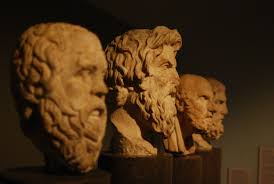 So what is philosophy? What lessons do we learn from Kant’s critique of metaphysics? Reason searches for comprehensibility. We want to make sense of life and the Universe. We want answers to our questions. Metaphysics, and more broadly philosophy, is the ideal search, the highest pursuit, curiosity itself, the elevation of the human spirit, the love of wisdom and knowledge. Without metaphysics, without philosophy, there is no science. Strangely enough, science criticizes philosophy for its ambition; and yet, were it not for ambition, science would be naught; science (physics) derives from metaphysics. For reflection, the following are selections from different works that testify, I feel, to the spirit of philosophy, to what it means to philosophize:
So what is philosophy? What lessons do we learn from Kant’s critique of metaphysics? Reason searches for comprehensibility. We want to make sense of life and the Universe. We want answers to our questions. Metaphysics, and more broadly philosophy, is the ideal search, the highest pursuit, curiosity itself, the elevation of the human spirit, the love of wisdom and knowledge. Without metaphysics, without philosophy, there is no science. Strangely enough, science criticizes philosophy for its ambition; and yet, were it not for ambition, science would be naught; science (physics) derives from metaphysics. For reflection, the following are selections from different works that testify, I feel, to the spirit of philosophy, to what it means to philosophize:
“Human reason has this peculiar fate that in one species of its knowledge it is burdened by questions which, as prescribed by the very nature of reason itself, it is not able to ignore, but which, as transcending all its powers, it is also not able to answer” (Kant, op. cit., A vii).
Commentary: The opening line of the Critique. As humans, we are curious and instinctively ask questions, questions that are too big to answer.
“The totality of conditions is not given (gegeben) but the search for the totality of conditions (the unconditioned) is assigned (aufgeben) us as a task which must be performed without end” (Wiener, ibid.).
Commentary: Even though these questions are unanswerable, they persist, nagging at us constantly, begging for thought—we feel it a duty to think them.
“Metaphysics, in Kant’s view, is the natural, persistently repeated, but necessarily vain attempt to supply what our reasons demands but can never have” (O’Connor, A Critical History of Western Philosophy, p. 305d).
Commentary: The mind is always coming up with new ideas, some better than others, but none of which is satisfactory; philosophy is interminable.
“All men, by nature, desire knowledge” (Aristotle, Metaphysics, 980a).
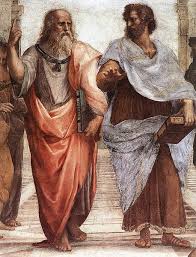 Commentary: One of the greatest opening lines of a philosophical work. It is incidental, too, that the work is titled Metaphysics—the first of its kind. Kant is an Aristotelian.
Commentary: One of the greatest opening lines of a philosophical work. It is incidental, too, that the work is titled Metaphysics—the first of its kind. Kant is an Aristotelian.
“Philosophy begins in wonder” (Plato, Theætetus, 155d).
Commentary: The forerunner to Aristotle. Also a nice, simple characterization of philosophy.
“[Eros is] a lifelong seeker after truth” (Plato, Symposium, 203d).
“[L]ove is a lover of wisdom, and, being such, he is placed between wisdom and ignorance” (Id., p. 204b).
Commentary: Love—the subject of the Symposium—and philosophy are deeply intertwined, the one necessitating the other. In seeking after Love, which is synonymous with wisdom, and just as elusive, philosophy is forever a journey, not a destination.
“Thus the philosopher will never attain wisdom, but he can make progress in its direction. According to the Symposium, then, philosophy is not wisdom, but a way of life and discourse determined by the idea of wisdom… The philosopher… tended toward wisdom, but in an asymptotic way, and without ever being able to reach it” (Hadot, What is Ancient Philosophy?, pp. 46, 49).
Commentary: One of my favorite illustrations of philosophy. Philosophy as a tortuous path, a work-in-progress, never-ending. Philosophy as a way of life. To be a philosopher, is to ask questions. We use the infinitive “to ask” because the task itself is infinite: The philosopher never reaches wisdom, but always seeks it, always asks questions, always… An ideal toward which we aspire.
“[M]etaphysics actually exists… as natural disposition (metaphysica naturalis). For human reason, without being moved by the idle desire for extent and variety of knowledge, proceeds impetuously, driven on by an inward need, to questions such as cannot be answered by any empirical employment of reason, or by principles thence derived. Thus in all men, as soon as their reason has become ripe for speculation, there has always existed and will always continue to exist some kind of metaphysics” (Kant, op. cit., B 21)
Commentary: For Aristotle, man is a rational animal; for Kant, a metaphysical animal. We are born philosophers. When we are happiest, and when we are saddest, we philosophize. That we ask questions, is question-worthy. Since the dawn of time, we have been asking the same questions, yet we have never gotten the same answers. The human condition.
[1] Stumpf, Socrates to Sartre, p. 301
[2] Ferm, A History of Philosophical Systems, p. 287
[3] Wiener, Dictionary of the History of Ideas, Vol. 1, p. 92d
[4] Kant, Critique of Pure Reason, B xxx
[5] Id., A 829/B 857
[6] Id., A 809/B 833
[7] Randall, The Career of Philosophy, Vol. II, p. 146
For further reading: The Career of Philosophy Vol. II by John Herman Randall, Jr. (1964)
Oxford Dictionary of Philosophy 3rd ed. by Simon Blackburn (2016)
A Critical History of Western Philosophy by D.J. O’Connor (1964)
Dictionary of the History of Ideas Vol. 1 by Philip Wiener (1980)
Dictionary of the History of Ideas Vol. 3 by Philip Wiener (1980)
The Encyclopedia of Philosophy Vol. 4 by Paul Edwards (1967)
Socrates to Sartre by Samuel Enoch Stumpf (1982)
Critique of Pure Reason by Immanuel Kant (1965)
Pingback: Pascal’s Existentialism: Boredom, Death, and Knowledge (3 of 3) | Neologikon
Pingback: A Summary and Review of Huston Smith’s “Condemned to Meaning” (2 of 2) | Neologikon
Pingback: On “First” Philosophy (2/3) | Neologikon
Pingback: Does the Soul Exist? (1 of 2) | Neologikon
Pingback: Kant on the Metaphysics of Nature | Neologikon
Pingback: Sandel On the Primacy of Right (1 of 3) | Neologikon
Pingback: Kant on Religion | Neologikon